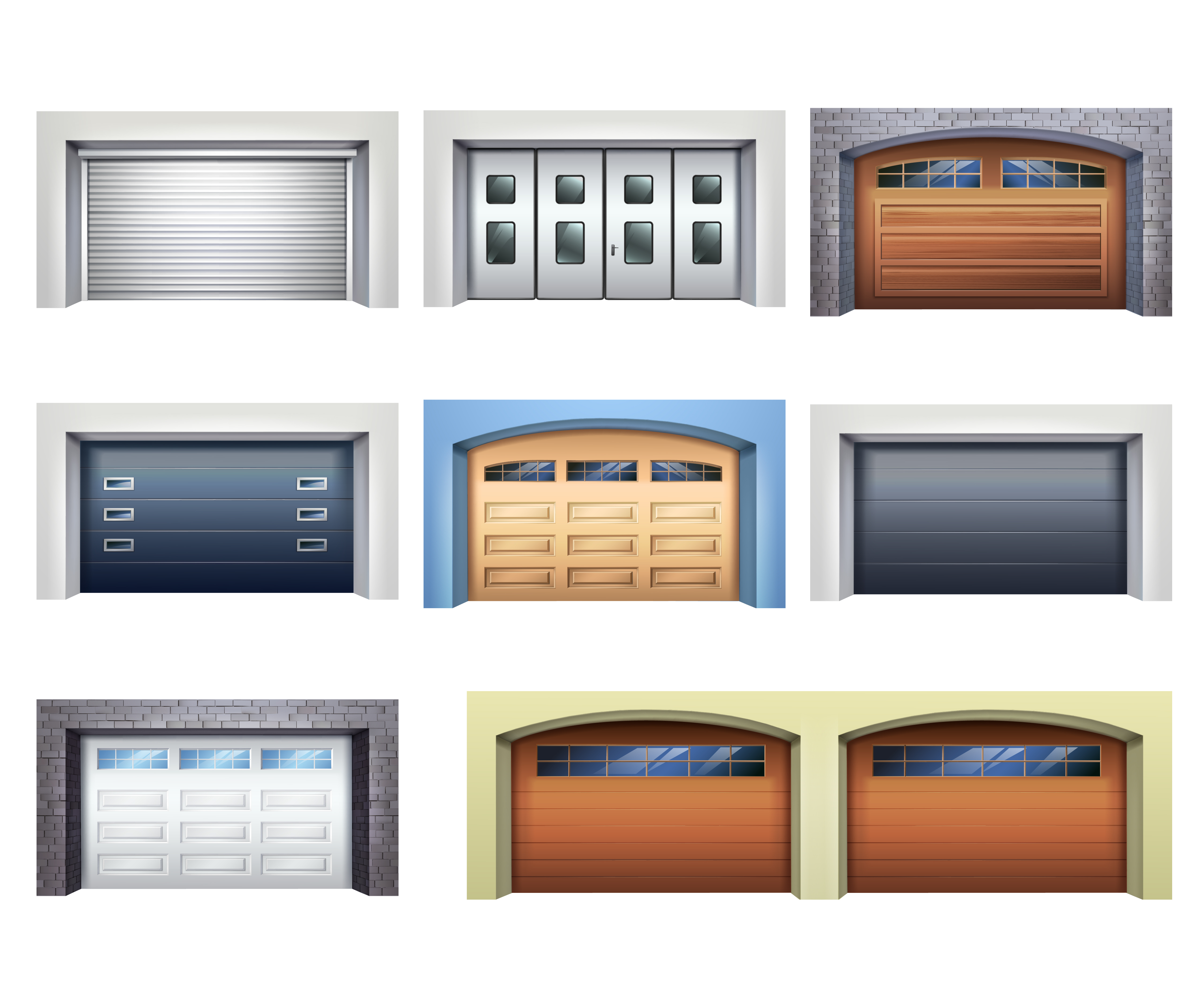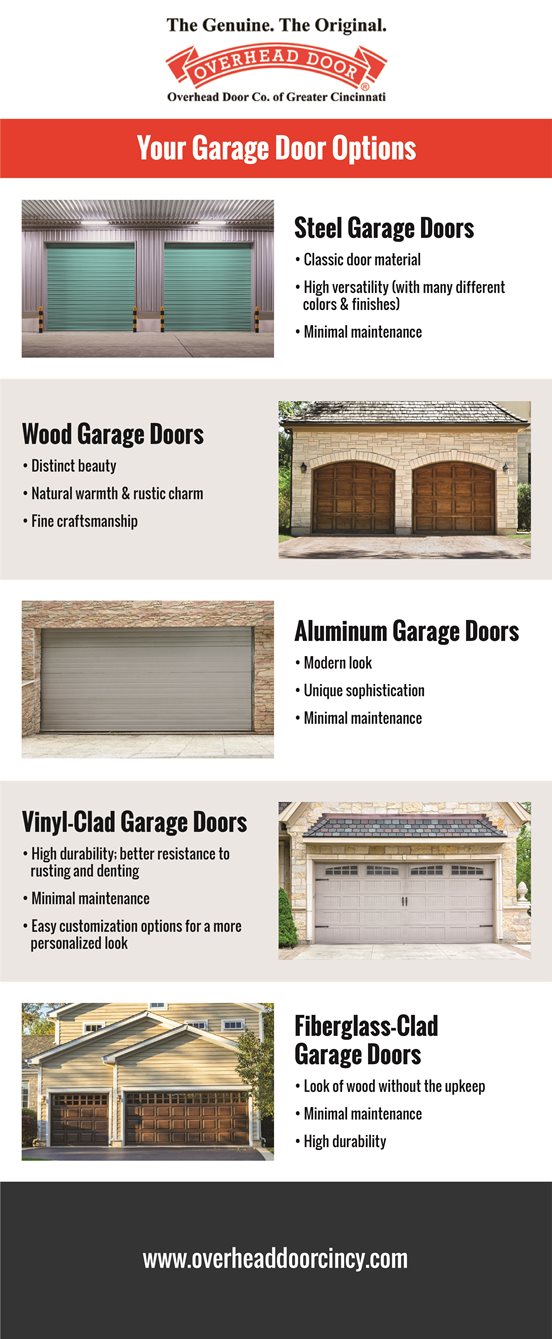Welcome, young readers, to the fascinating world of garage doors! Today, we’re going to dive into a question that might have crossed your mind: “What are the different types of garage door materials?” So, buckle up and get ready to discover the secrets behind these impressive entrances to your humble abode.
When it comes to garage door materials, there are a few key players in the game. From sturdy steel to natural wood and durable aluminum, each material brings its own unique qualities to the table. Are you curious to know which one suits your needs and style? Well, you’ve come to the right place!
In this guide, we’ll explore the pros and cons of each type of garage door material, giving you the lowdown on everything from their strength and insulation properties to their maintenance requirements and aesthetic appeal. By the end, you’ll be armed with the knowledge you need to make an informed decision about which garage door material is the perfect fit for you and your home. So, let’s get started on this exciting journey together!

What are the Different Types of Garage Door Materials?
In this article, we will explore the different types of materials used in garage doors. The choice of material can greatly impact the performance, durability, and aesthetic appeal of a garage door. By understanding the characteristics of each material, homeowners can make an informed decision when selecting a garage door for their home.
Metal
Metal is one of the most popular materials used in garage doors. It offers durability, strength, and a wide range of design options. Steel is a common metal used in garage door construction, known for its high strength and resistance to dents. Aluminum is another popular choice, as it is lightweight and resistant to corrosion. Both steel and aluminum garage doors can be designed to mimic the appearance of wood, making them a versatile choice for homeowners.
One of the main advantages of metal garage doors is their low maintenance requirements. They are relatively easy to clean and do not require regular repainting. However, metal doors can be susceptible to dents and may require insulation to prevent heat loss or gain. Additionally, metal garage doors can be noisy when opening and closing, especially if not properly insulated.
Overall, metal garage doors offer a practical and durable option for homeowners who value low maintenance and versatility in their choice of design.
Wood
Wood is a classic and timeless material used in garage doors. It offers a natural and elegant aesthetic that can enhance the curb appeal of a home. Wood garage doors are often custom-made, allowing homeowners to choose the type of wood, finish, and design that best suits their preferences. Popular types of wood used in garage doors include cedar, redwood, and mahogany.
While wood garage doors are highly sought after for their beauty, they require regular maintenance to prevent warping, cracking, and rotting. Homeowners should regularly stain or paint the door to protect it from the elements. Wood garage doors also tend to be more expensive than metal doors and may not offer the same level of insulation.
Despite the maintenance requirements, many homeowners choose wood garage doors for their ability to add warmth and character to a home. They are a popular choice for those seeking a traditional or vintage aesthetic.
Fiberglass
Fiberglass is a lightweight and durable material that is commonly used in garage doors. It is known for its resistance to moisture, insects, and warping, making it a suitable choice for areas with extreme weather conditions. Fiberglass garage doors are available in a variety of colors and finishes, including wood grain textures.
One of the main advantages of fiberglass garage doors is their low maintenance requirements. They do not require regular staining or painting and can be easily cleaned with soap and water. Fiberglass doors are also energy efficient, as they offer good insulation properties.
However, fiberglass garage doors may not be as strong as metal or wood doors and can be prone to cracking or fading over time. They are also more expensive than traditional steel doors. Despite these drawbacks, fiberglass garage doors offer a lightweight and low-maintenance option for homeowners who prioritize durability and energy efficiency.
Key Takeaways: Different Types of Garage Door Materials
When it comes to choosing a garage door material, there are several options to consider. Here are the key takeaways to keep in mind:
- 1. Steel garage doors are durable, low-maintenance, and offer excellent security.
- 2. Wood garage doors are beautiful and can be customized, but require more upkeep.
- 3. Aluminum garage doors are lightweight and resistant to rust, making them a good choice for coastal areas.
- 4. Fiberglass garage doors are durable, lightweight, and resistant to humidity, perfect for humid climates.
- 5. Vinyl garage doors are energy-efficient and require minimal maintenance, making them a popular option.
Frequently Asked Questions
When it comes to choosing the right garage door, understanding the different types of materials available is crucial. Whether you’re looking for durability, aesthetics, or cost-effectiveness, each material has its own unique advantages. Here are 5 frequently asked questions about the different types of garage door materials.
1. What are the benefits of choosing a steel garage door?
Steel garage doors are a popular choice due to their durability and low maintenance. They are resistant to rust, dents, and warping, making them suitable for all weather conditions. Steel doors are also highly customizable, allowing you to choose different styles, finishes, and insulation options. Additionally, they offer excellent security and can withstand strong impacts.
However, it’s important to note that steel doors can be susceptible to scratches and can be noisy when opening and closing. To reduce noise, you can opt for insulation or choose a higher gauge steel door, which is thicker and less prone to vibration.
2. What are the advantages of opting for a wooden garage door?
Wooden garage doors are known for their timeless appeal and natural beauty. They can enhance the overall aesthetics of your home and can be customized to match your desired style. Wood also has excellent insulation properties, which can help regulate the temperature inside your garage. Additionally, wooden doors can be repaired or refinished easily if they get damaged.
However, wooden doors require regular maintenance and refinishing to protect them from rot, warping, and insect damage. They are also more susceptible to weather conditions and may not be as durable as other materials. If you choose a wooden garage door, make sure to properly maintain it to prolong its lifespan.
3. What are the benefits of selecting an aluminum garage door?
Aluminum garage doors are lightweight, making them easy to operate manually or with an automatic opener. They are also resistant to rust, making them a good choice for coastal areas or places with high humidity. Aluminum doors come in a variety of finishes and can be customized to match your home’s exterior. Additionally, they require minimal maintenance and are highly durable.
However, aluminum is not as strong as steel, and aluminum doors may dent more easily. They also offer less insulation compared to other materials. If insulation is a concern, you can choose an aluminum door with built-in insulation or add insulation panels to improve energy efficiency.
4. What are the advantages of fiberglass garage doors?
Fiberglass garage doors are resistant to moisture, rot, and insects, making them a suitable choice for humid climates. They can mimic the look of wood without the high maintenance. Fiberglass doors are also lightweight, durable, and less prone to denting or scratching. They require minimal maintenance and are a good option for those seeking a visually appealing and low-maintenance door.
However, fiberglass garage doors may fade or become brittle over time due to exposure to sunlight. They are also less energy efficient compared to insulated steel doors. If you choose a fiberglass door, ensure it has UV-resistant coatings or consider adding insulation to improve energy efficiency.
5. What are the benefits of choosing a vinyl garage door?
Vinyl garage doors are highly durable, resistant to denting, rust, and corrosion. They are low maintenance and do not require painting or refinishing. Vinyl doors are also energy efficient, thanks to their insulation properties, and can withstand harsh weather conditions. They are available in various colors, styles, and finishes, allowing you to customize the door to match your home’s appearance.
However, vinyl garage doors may be more expensive than other materials. In extreme temperatures, they can expand or contract, resulting in potential operation issues. It’s important to choose a reputable brand and ensure proper installation to avoid any problems.

Summary
So, now you know about the different types of materials used for garage doors. Each material has its strengths and weaknesses, so it’s important to consider your needs and budget before making a choice. Steel garage doors are durable and low maintenance, while wooden doors give a warm and natural look. Aluminum doors are lightweight but may dent easily, and fiberglass doors are resistant to moisture and don’t require much upkeep. Make sure to pick the material that suits your style and requirements for the perfect garage door.

